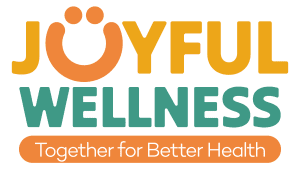Expert advice and lifestyle changes to lower your cancer risk, with insights from Dr. Zoe Arugay-Magat
BY KATHERINE L. MAGSANOC
Cancer, a complex disease characterized by uncontrolled cell growth, affects millions worldwide. While genetic predisposition plays a role in a small percentage of cases (approximately 5-10%), the vast majority (90-95%) are linked to lifestyle and environmental factors.
This means that proactive steps can significantly reduce your chances of developing this disease. This article features insights from Dr. Ava Angela ‘Zoe’ V. Arugay-Magat, an occupational medicine specialist and Institute for Functional Medicine (IFM) Certified Practitioner, dedicated to women’s health and wellness.
Let’s explore proven cancer prevention strategies and delve deeper into the science behind them.
Understanding Cancer: A Cellular Perspective
At its core, cancer is a disease of the cell. Our bodies are made up of trillions of cells, each containing our genetic blueprint, DNA.
Normally, cells grow and divide in an organized manner, replacing old or damaged cells. However, cancer arises when errors occur in a cell’s DNA, leading to mutations.
These mutations can disrupt the normal cell cycle, causing cells to grow and divide uncontrollably. This uncontrolled growth can lead to the formation of a tumor, a mass of abnormal cells.
Tumors can be benign (non-cancerous) or malignant (cancerous).
Malignant tumors have the ability to invade surrounding tissues and spread to other parts of the body through a process called metastasis. This spread is what makes cancer so dangerous and difficult to treat.
Several types of genes are involved in the development of cancer:
Oncogenes, when mutated, can promote uncontrolled cell growth.
Tumor suppressor genes normally regulate cell growth and prevent cancer, but mutations in these genes can disable their protective function.
DNA repair genes are responsible for fixing errors in DNA, and mutations in these genes can impair the cell’s ability to correct DNA damage, increasing the risk of cancer.
The Role of Lifestyle and Environment
While genetic factors contribute to a small percentage of cancers, lifestyle and environmental factors play a much larger role in the vast majority of cases.
These factors can interact with your genes, either triggering mutations or influencing the expression of genes that contribute to cancer development.
Let’s examine some key risk factors in more detail.
Key Risk Factors and Their Impact
Tobacco Use
Tobacco contains numerous carcinogens, chemicals that damage DNA and increase the risk of cancer.
Smoking is a leading cause of lung cancer, but it also significantly increases the risk of other cancers, including throat, bladder, kidney, and pancreatic cancer.
Quitting smoking is one of the most impactful steps you can take to reduce your cancer risk.
Diet
Your diet plays a crucial role in cancer prevention.
A diet rich in fruits and vegetables provides essential vitamins, minerals, and antioxidants that protect against DNA damage.
Conversely, a diet high in processed foods, red meat, and saturated fats increases inflammation and oxidative stress, increasing the risk of cancer.
Focusing on whole grains, lean proteins, and healthy fats is crucial.
Physical Inactivity
Lack of physical activity contributes to obesity, which is linked to increased cancer risk.
Regular exercise not only helps maintain a healthy weight but also strengthens the immune system, improving your body’s ability to fight off disease.
Obesity
Being overweight or obese is associated with increased risk of several types of cancer, including breast, colon, endometrial, and kidney cancer.
Maintaining a healthy weight through diet and exercise is a crucial part of cancer prevention.
Alcohol Consumption
Excessive alcohol consumption damages DNA and increases the risk of several cancers, including liver, breast, colon, and mouth cancer.
Limiting alcohol intake or abstaining altogether is recommended.
Sun Exposure
Excessive sun exposure without proper protection leads to DNA damage in skin cells, increasing the risk of skin cancer.
Using sunscreen with an SPF of 30 or higher, wearing protective clothing, and limiting sun exposure, especially during peak hours, are crucial for skin cancer prevention.
Infections
Certain infections, such as human papillomavirus (HPV), hepatitis B and C viruses, and Helicobacter pylori bacteria, are linked to an increased risk of specific cancers.
Vaccinations against HPV and hepatitis B are highly effective preventative measures.
Preventive Steps You Can Take
While you can’t control your genetics, you can control many of the factors that influence your cancer risk.
Here’s how to take control of your health:
Adopt a Healthy Diet
Prioritize a plant-based diet rich in fruits, vegetables, whole grains, and lean proteins. Limit processed foods, red meat, and sugary drinks. Choose foods rich in antioxidants, vitamins, and minerals.
Maintain a Healthy Weight
Regular exercise and balanced nutrition are essential for maintaining a healthy weight, reducing cancer risk. Aim for a BMI within the healthy range.
Be Physically Active
Aim for at least 150 minutes of moderate-intensity or 75 minutes of vigorous-intensity aerobic activity weekly. Incorporate strength training exercises at least two days a week.
Avoid Tobacco
Don’t smoke and avoid secondhand smoke. If you smoke, seek help to quit.
Limit Alcohol Consumption
Moderate your alcohol intake or abstain completely. Follow recommended guidelines for alcohol consumption.
Protect Yourself from the Sun
Use high-SPF sunscreen, protective clothing, and limit sun exposure. Perform regular skin self-exams.
Get Vaccinated
Vaccinations against HPV and Hepatitis B & C are highly effective in preventing certain cancers.
Regular Screenings
Attend recommended cancer screenings based on age and family history. Early detection significantly improves treatment outcomes.
Manage Stress
Chronic stress weakens the immune system. Practice stress-management techniques like yoga, meditation, deep breathing exercises, or spending time in nature.
The Holistic Approach: Dr. Zoe’s Perspective
Dr. Arugay-Magat emphasizes a holistic approach to well-being, incorporating mental, emotional, and spiritual health for comprehensive cancer prevention.
Nurturing strong relationships, engaging in spiritual practices, and prioritizing mental health can enhance your immune system and overall resilience. Her work with women’s circles, incorporating cacao medicine and meditation, highlights the importance of this integrated approach.
She believes that addressing all aspects of well-being – physical, mental, emotional, and spiritual – is crucial for optimal health and cancer prevention.
Take Control of Your Health Today
Start making positive changes to your lifestyle now. Even small steps can make a big difference in reducing your cancer risk.
Schedule a checkup with your doctor, discuss your family history, and begin incorporating these preventative measures into your daily routine.
Your health is your greatest asset – protect it. Empower yourself with knowledge and take action towards a healthier, cancer-free future.
DISCLAIMER
This article provides general information and does not constitute medical advice. Consult your healthcare provider for personalized recommendations. If symptoms persist, consult your doctor.
Photo by Angiola Harry on Unsplash







